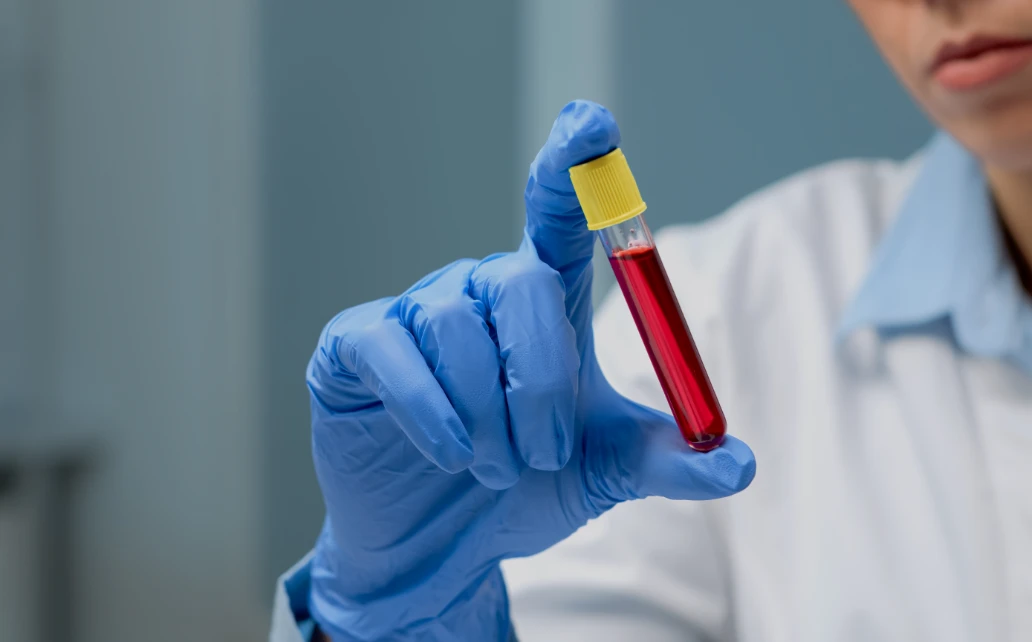
May 22, 2025
Team Suraksha

The journey of pregnancy is a remarkable time, filled with anticipation, excitement, and a natural desire for every assurance about your developing baby's health. In this era of incredible scientific progress, expectant parents have access to innovative screening tools that offer earlier and safer insights than ever before. One of the most significant advancements is Non-Invasive Prenatal Testing (NIPT). At Suraksha Genomics, we understand the importance of clear, reliable information during these precious months. NIPT represents a significant step forward in prenatal screening, offering peace of mind and empowering families with valuable knowledge early in their pregnancy.
NIPT is a sophisticated blood test performed on the expectant mother, typically as early as 10 weeks into the pregnancy. The magic behind NIPT lies in its ability to analyze tiny fragments of your baby’s DNA, known as cell-free fetal DNA (cffDNA), which naturally circulate in the mother's bloodstream. This means that with a simple blood draw from the mother's arm, we can gain important information about the baby’s chromosomes without posing any risk to the pregnancy itself. This non-invasive approach marks a gentle yet powerful departure from older screening methods, providing a safe way to assess the likelihood of specific chromosomal conditions.
NIPT is exceptionally effective at screening for some of the most common chromosomal conditions that can impact a baby’s health and development. At Suraksha Genomics, our NIPT focuses on:
By specifically looking for the likelihood of these three trisomies, NIPT provides targeted and highly accurate information.
The benefits of NIPT have made it a widely recommended screening option for expectant parents: Its remarkable accuracy for detecting Down syndrome, Edwards syndrome, and Patau syndrome is a primary advantage. NIPT boasts detection rates of over 99% for Down syndrome, for instance, offering a high degree of confidence in the results. Furthermore, it can be performed early in pregnancy, providing crucial information sooner than many traditional screening tests. Crucially, NIPT is safe for both mother and baby, as it only requires a maternal blood sample. This contrasts with invasive diagnostic procedures like amniocentesis or CVS, which carry a small risk of miscarriage. NIPT also has a lower false positive rate compared to older maternal serum screening tests. This means fewer families experience unnecessary anxiety and are less likely to be recommended for invasive follow-up tests based on a misleading screening result.
It’s very important to understand that NIPT is an advanced screening test, not a diagnostic test. A "low-risk" result means it is highly unlikely that your baby has one of the screened conditions. A "high-risk" result, however, indicates an increased chance that the baby may have the condition, but it does not confirm it. If an NIPT result comes back as high-risk, your doctor or a genetic counselor will discuss the findings with you. They will typically recommend confirmatory diagnostic testing, such as amniocentesis or Chorionic Villus Sampling (CVS), followed by tests like karyotyping or microarray, to get a definitive diagnosis. Genetic counseling plays a vital role throughout this process, helping you understand the results and your options.
International guidelines, including those from the American College of Obstetricians and Gynecologists (ACOG), now recommend that NIPT be offered to all pregnant women, regardless of their age or perceived risk level, as a screening option for these common trisomies. It can be particularly reassuring for those who may have had concerning results from previous screenings or have other factors that place them at higher risk.
At Suraksha Genomics, we are dedicated to providing expectant parents with access to highly accurate and reliable NIPT services. Our state-of-the-art laboratory, experienced geneticists, and supportive genetic counselors ensure you receive clear results and comprehensive guidance. NIPT offers a valuable window into your baby's well-being, empowering you with early information to make informed decisions for your pregnancy and your family. It represents a significant stride in prenatal care, bringing reassurance and clarity to one of life’s most extraordinary journeys. If you are pregnant or planning a pregnancy, talk to your healthcare provider or contact us to learn more about how NIPT can be a part of your prenatal care.